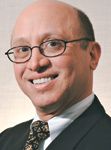- Acne
- Actinic Keratosis
- Aesthetics
- Alopecia
- Atopic Dermatitis
- Buy-and-Bill
- COVID-19
- Case-Based Roundtable
- Chronic Hand Eczema
- Chronic Spontaneous Urticaria
- Drug Watch
- Eczema
- General Dermatology
- Hidradenitis Suppurativa
- Melasma
- NP and PA
- Pediatric Dermatology
- Pigmentary Disorders
- Practice Management
- Precision Medicine and Biologics
- Prurigo Nodularis
- Psoriasis
- Psoriatic Arthritis
- Rare Disease
- Rosacea
- Skin Cancer
- Vitiligo
- Wound Care
Article
Expert witnesses: Who Can Testify Against Me?
Dr. Skin has been practicing dermatology for 20 years. He performs both medical and cosmetic treatments. Three years ago, he chose to desiccate plantar warts on the foot of a 32-year-old diabetic athlete. The sites became infected and, ultimately, an amputation of the patient's foot was required.

The patient sued the dermatologist and brought a nationally recognized podiatric surgeon as his expert. The podiatrist is prepared to testify that Dr. Skin's medical care of his patient breached the reasonable standard of care, ultimately leading to the necessity of an amputation.
Although Dr. Skin acknowledges that the podiatrist is an expert in the care of foot problems, he argues that a podiatrist should not be allowed to testify as an expert witness against a medical doctor. Will Dr. Skin's attempt to preclude such testimony be successful?
The plaintiff brought suit against the orthopedic surgeon and brought forth a podiatrist expert witness. The podiatrist was to testify that the surgeon deviated from the ordinary standard of care in the surgery, and provided substandard post-surgical care. The testimony would also state that these breaches of care were the direct cause of the plaintiff's problems.
Before trial, the orthopedic surgeon sought to preclude the podiatrist's testimony on the grounds that, as a podiatrist, the non-medical doctor was not competent to testify concerning the standard of care pertaining to an orthopedic surgeon.
Four important provisions of a Pennsylvania statute were important in this case:
1) There will be no presentation of an expert medical opinion in a medical professional liability action against a physician unless the witness possesses sufficient education, training, knowledge and experience;
2) An expert testifying on a medical matter must possess an unrestricted physician's license;
3) An expert testifying to the standard of care must be substantially familiar with the applicable standard for the specific care at issue at the time of the alleged breach;
4) An expert testifying as to a physician's standard of care must practice in the same subspecialty as the defendant physician or in a subspecialty that has a substantially similar standard of care for the specific care at issue.
The orthopedic surgeon could not argue that the podiatrist did not fulfill the first, third and fourth provisions of the Pennsylvania statute. The podiatrist clearly had the education, training, knowledge and expertise to deal with bunions. Similarly, it can be argued that the standard of care as it applies to an orthopedic surgeon's approach to a bunion would be similar to that of a podiatrist. Finally, although the podiatrist and orthopedic surgeon are in very different specialties, their specialties' approaches to treatment of the bunion would be quite similar.
The Pennsylvania court focused on the second provision of the statute; namely, that the podiatrist does not possess an unrestricted physician's license. It noted that a podiatrist does not attend medical school and that the practice of podiatry is limited to treatments of the foot. Furthermore, podiatrists are licensed through a different regulatory body than are physicians.
Therefore, the court ruled that a podiatrist could not render an opinion as to the applicable standard of care of an orthopedic surgeon.
Dr. Skin should take a similar approach in trying to preclude the podiatrist expert witness. Although he certainly has a chance to stop the podiatrist's testimony, he must recognize that not all states may have the same wording as that of Pennsylvania. In addition, if instead of a podiatrist expert, the plaintiff chose to bring an orthopedic surgeon with expertise in the treatment of verrucae, the expert testimony would not likely be precluded by any jurisdiction.
Dr. Goldberg is the director of Skin Laser & Surgery Specialists of New York and New Jersey; director of Mohs surgery and laser research, Mount Sinai School of Medicine; and adjunct professor of law, Fordham Law School.
Newsletter
Like what you’re reading? Subscribe to Dermatology Times for weekly updates on therapies, innovations, and real-world practice tips.











